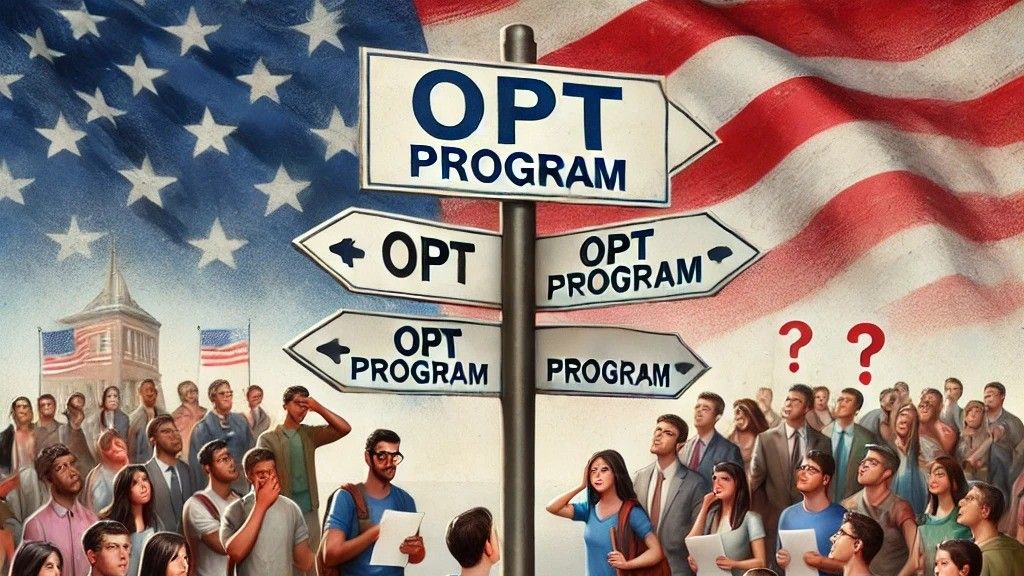
Growing worries about foreign worker programs have led to the investigation of the Optional Practical Training (OPT) program, which allows international students, including those from India, to work in the US after graduation. Some have said that OPT is being used as a long-term immigration gateway is evading traditional procedures, and has been attacked for abuse in filling American jobs.
The OPT program was originally designed for short-term skill development, allowing international students holding STEM degrees on F-1 visas to work in the US for up to three years. Critics describe it as a "backdoor" admission into the US labour market, competing with US graduates for jobs and working without Congressional sanction.
On the contrary, the US Tech Workers group says that "The OPT program is a guest worker scheme disguised as an internship for foreign students." Rather than teaching, universities are selling job licenses. To protect American college graduates from unfair competition, Trump should end OPT, which was illegally established, just like DACA (Deferred Action for Childhood Arrivals), tweeted on X.
Education leaders highlight OPT’s role in economic growth
Education leaders are out defending the program's significance. “I believe that it's crucial for US higher education to keep inviting students around the world," observes Terrence Graham, Associate Dean for Graduate Education and Chief International Officer at the University of Southern California. "One of the key reasons students choose the U.S. is just to get as much time with OPT," added Graham. He points out that "In my school, most of our programs are STEM-designated, allowing international students to work in the U.S. for up to three years after graduation.”
Graham tells FPJ, "The debate surrounding this issue within the incoming administration is concerning, especially with some factions being anti-immigrant. However, there's also strong support coming from the business community, entrepreneurs like Elon Musk, who understand the importance of international students in the U.S. economy. The Bay Area depends on these talented people, and I remain optimistic that the business community's support will outweigh the opposition."
Dr. Fred P. Pestello, President of Saint Louis University, emphasises the broader context of employment opportunities. "No, I think it's incumbent upon universities to work with their students as well as employers to try to ensure that there is as broad a range of opportunity as possible, including that we use our opportunities on campus to employ students," he says, noting that many Indian students work in various technology roles across campus departments.
OPT uncertainty impacts career planning for International students
The debate has created uncertainty for current international students. A PhD candidate in Electrical & Computer Engineering from a top US university, speaking anonymously, shared her experiences with FPJ and said, "The OPT program was crucial for my work experience. It allows me to apply academic knowledge in real-world settings, enhancing my skills and employability. With up to 36 months of employment authorisation for STEM graduates, I would have ample time to develop professional skills and understand the practical application of theoretical knowledge."
While discussing the issues, she added, "The uncertainty around the OPT program greatly affects my career planning and decisions. Securing jobs on OPT can be extremely challenging due to my visa status. Many startups and small companies are reluctant to onboard international candidates, as they may not be familiar with the visa process or wary of potential complications."
She further added, "These delays can lead to employers withdrawing their offers if they need someone to start immediately. Even if the offer isn't withdrawn, the need to postpone start dates can cause undue stress and anxiety, as I have to navigate the uncertainty and keep the employer informed. Furthermore, if the company decides to lay me off during my OPT period, I have only 90 days or less to find a new opportunity.”
She also added that in defence of the program, "I understand the concerns about the OPT program, but I believe it brings significant value. As an international student, the program has allowed me to gain work experience in the U.S., contribute to the economy, and offer diverse perspectives to the workplace. Many students, including myself, come with significant experience from India and are willing to work harder and longer hours, even on weekends, for equal or lesser pay." She also noted that "in 2018, they added roughly $41 billion and supported thousands of jobs. Instead of taking jobs away, I support the workforce by addressing skill shortages and driving innovation."
The program's future also affects prospective students' decisions. Aayushi Chowdhary is in the process of applying to the USA for her Master's in Computer Science. "Being an individual that wants to come to the States to study, the OPT scheme is pretty important because it allows a chance for students like me to gain experience during and after finishing college. One of the strongest reasons why a huge number of my peers have applied to study in the States; I do acknowledge that people say it can become misused in some ways, though for the masses, it was never about someone taking away someone's job—the whole thing, for me, was about learning. Gaining hands-on experience at work. Turning into a serious professional in those fields. Simple rules in this regard might avoid misuse, but prohibition would deter youngsters from opting to study in the US."